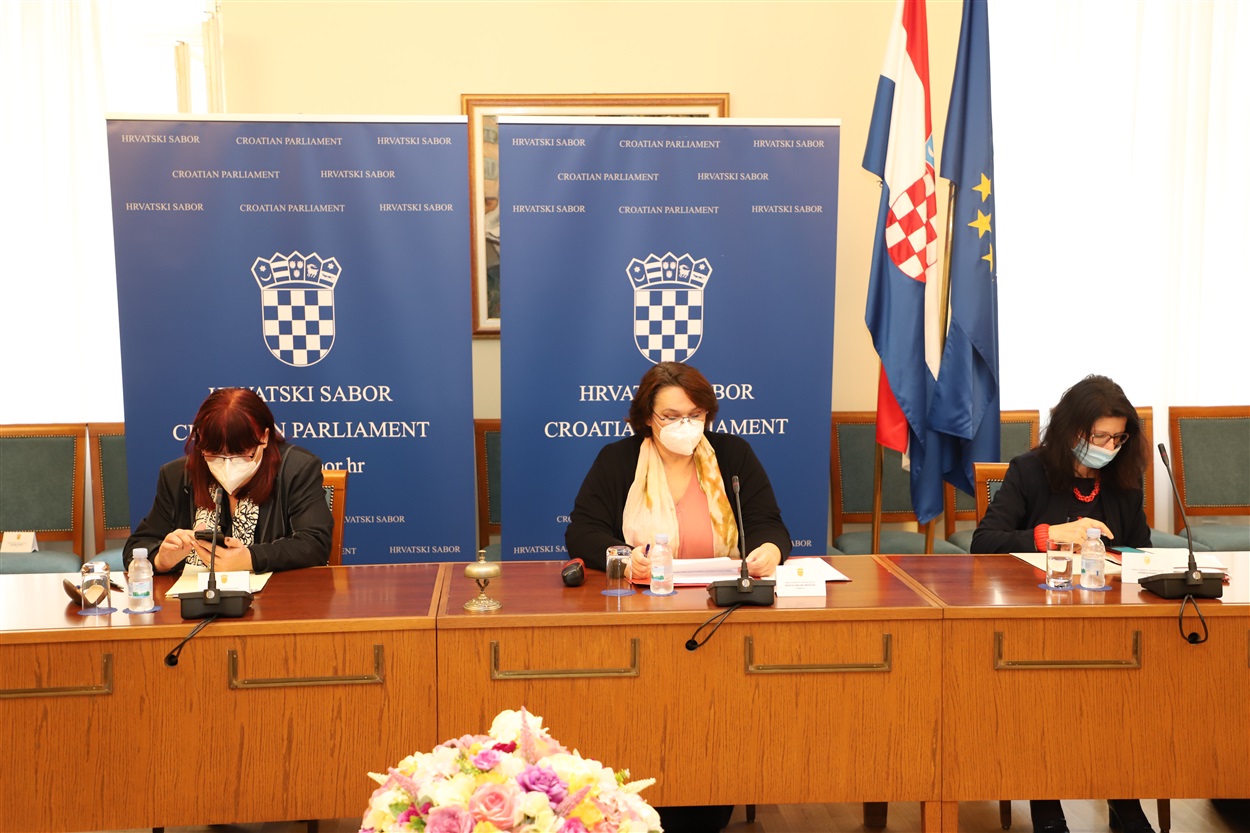
Zagreb - The Croatian healthcare system needs serious restructuring, but should continue to operate on a basis of solidarity and provide care for all, the chair of the parliamentary Healthcare Committee, Renata Sabljar-Dračevac (SDP), told reporters on Monday after a discussion on the debt in the health sector.
The Committee was told that the debt to drug wholesalers had reached HRK 11 billion, of which HRK 4.39 billion had fallen due, HRK 3.8 billion was owed by hospitals and HRK 1.5 billion was owed on account of miscalculated overtime hours put in by health staff.
It was also stressed that it was increasingly difficult for the health system to cope with the growing number of patients infected with the coronavirus.
Beroš: Health system should be made self-sustainable and financially stable
The total debt of the health system as of September 30 was HRK 13.83 billion, of which HRK 6.2 billion had fallen due, while the debt for medicines was HRK 4.5 billion, Health Minister Vili Beroš said via video link.
He said that the present system was unsustainable over the long term and should be made self-sustainable and financially stable. He added that the coronavirus pandemic had halted efforts to reorganise it.
Croatia allocates €861 per capita (7.4%) for healthcare, while the EU average is over €3,000 (9.9%), Beros said, noting that the allocation should be between 9% and 12% to make the system viable.
Beroš said that the costs of health institutions had increased and that he expected additional funds from a revised budget.
Asked by Committee member Andrea Marić (SDP) about hospital limits, the minister said that the limits of the Croatian Health Insurance Fund (HZZO) were set on the basis of funds raised, noting that the costs of the health system had partly increased because of the ageing of the population while revenues had declined because of the emigration of working-age people.
Beroš said that 54% of hospital expenditure accounted for staff wages, 34% for medicines and 12% for investment and equipment purchases.
Responding to a question from Committee member Silvano Hrelja (Pensioners Party), he said HRK 22.6 billion was raised from contributions, HRK 2.7 billion from the state budget, and HRK 1.5 billion from supplementary health insurance.
The health system's expenditures total HRK 27.7 billion, including HRK 9.9 billion for hospitals, HRK 4.28 billion for primary healthcare and HRK 3.73 billion for pharmacies.
Responding to a question from Committee member Mladen Karlić (HDZ), Beros said alternative methods for procuring drugs were being considered, including the establishment of a state wholesale supplier and direct procurement from the EU.
Speaking of stricter COVID measures, Beroš said the aim was to avoid further restrictions so as not to additionally endanger the economy.
Marić: Budget revision to shorten payment deadlines
Finance Minister Zdravko Marić, speaking via video link, said an interest-free loan had been arranged for the HZZO due to higher expenditures resulting from COVID and lower revenues as a result of weaker economic activity due to the pandemic.
As for the debt owed to drug wholesalers, he said it was not the only problem and that significant funds would be earmarked in a 2020 budget revision to shorten payment deadlines to 180 days. He underlined that financial viability was necessary for the health system to survive.
Committee member Maja Grba Bujević (HDZ) said patients' rights had been increasing for years, that more and more expensive drugs were on the HZZO list, that salaries in the sector had gone up 24% in the past four years while the cost of supplementary insurance had not increased in the past ten years. She noted that money for 16 categories of insurees came from the state budget.
Ivan Ćelić (HDZ) dismissed opposition MP Tomislav Tomaševic's claim that the national COVID response team had lost its purpose and that the July parliamentary election was political engineering by the ruling party.
He branded as populism and politicking the call by the HUBOL association of hospital doctors on MPs who are doctors to help healthcare deal with COVID.HRK 7.57)